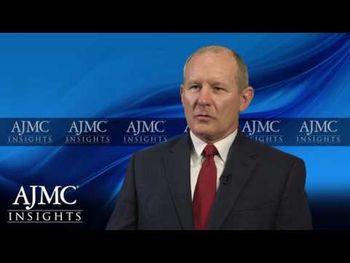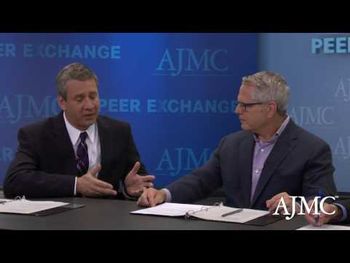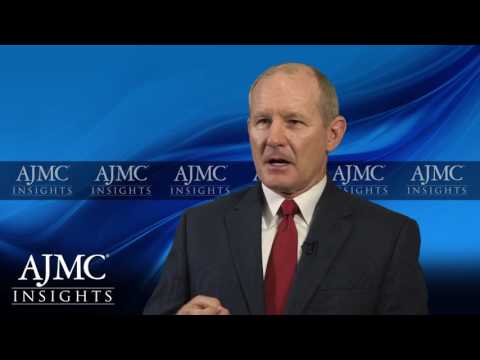
Insurance
Latest News
CME Content


A point of care medication delivery system improves medication adherence to cardiovascular medications without increasing costs.

The most recent Kaiser Health Tracking Poll was conducted during an exceptionally violent week. Concerns about terrorism and gun policy outranked jobs and the economy and healthcare as voter priorities.

Although the term "accountable care organization" (ACO) may not be here to stay, value-based organizations are here to stay based on the direction CMS is headed, said Jeb Dunkelberger, vice president of accountable care services at McKesson and clinical & commercial operations at ACO Partner.

The top stories in managed care this week included coverage of JAMA’s special issue on healthcare transformation under the ACA, changes in the proposed 2017 Physician Fee Schedule promoting value-based care, and more.

Highlights of coverage of our peer-reviewed research in the healthcare and mainstream press.

Despite their known risk, only half the women over 85 years of age in a cohort being evaluated had their baseline bone density tested prior to initiating treatment.

Physician groups like some part of the new fee plan but find other overly burdensome.

What We’re Reading, July 15, 2016: What can the 7 remaining co-ops do to survive; CMS projects increased Medicare spending per enrollee by 2025; and experts call for policy changes to support the health of prisoners at high risk for HIV.

On the first day of the annual meeting of the American Society of Clinical Oncology, healthcare experts from the United States, Canada, and the United Kingdom, compared and contrasted the care models that are widely adopted in each nation.

Analyzes whether hospital participation in accountable care organizations is associated with a hospital’s quality and cost improvement outcomes in other Medicare value-based payment programs.

Acting CMS Administrator Andy Slavitt told the Senate Finance Committee there are concerns that some primary care practices will not be ready for the targeted January 1, 2017, start date.

Though the implementation of the Affordable Care Act has introduced various beneficial provisions for the American public, Joe Antos, PhD, the Wilson H. Taylor Scholar in Health Care and Retirement Policy at the American Enterprise Institute, said that he still sees room for improvement.

What We're Reading, July 12, 2016: Oregon's Health CO-OP to close down by the end of July; experts discuss fairer ways to decide on drug pricing; and gender bias in physician salaries at academic institutions.

The National Cancer Institute (NCI) estimates that the aging US population will contribute to a substantial increase in the number of older cancer survivors over the next 25 years.

The president predicts that in 20 years, the nation will look back on "Obamacare" as a moment of courage that has improved people's lives.

The proposal to fund the collaborative care model is part of a broader effort to direct $900 million into primary care, mental health, and care coordination.

Details of how Medicare will deliver the Diabetes Prevention Program include efforts to prevent fraud, ensure patient privacy, and tie payment to value-based principles.

Yesterday's announcement featured several steps to combat opioid addiction, including expanded access to buprenorphine, steps to educate physicians, and controls on prescription programs through the Department of Defense and the Indian Health Service.

The New Jersey insurer said its fraud fighting efforts included both detective work and analytics. Nationwide, fraud prevention relies increasingly on predictive modeling to keep suspicious payments from ever going out the door.

The last 6 months have been considered by many as a historic moment for interventions that focus on the social needs of patients, explained Rocco Perla, president of Health Leads.

How does a state with almost no money launch Medicaid expansion? Louisiana health officials used data they already had, and in doing so have created a model that could be used elsewhere.

CMS has announced that the Oncology Care Model (OCM) developed by the Center for Medicare and Medicaid Innovation has 196 practices and 17 payers enrolled for participation.

What we're reading, June 29, 2016: CMS is considering changes to the proposed Medicare Part B demonstration; Senate Democrats block the GOP's Zika funding bill; and a Bloomberg analysis shines light on the pricing practices of the pharmaceutical industry.











